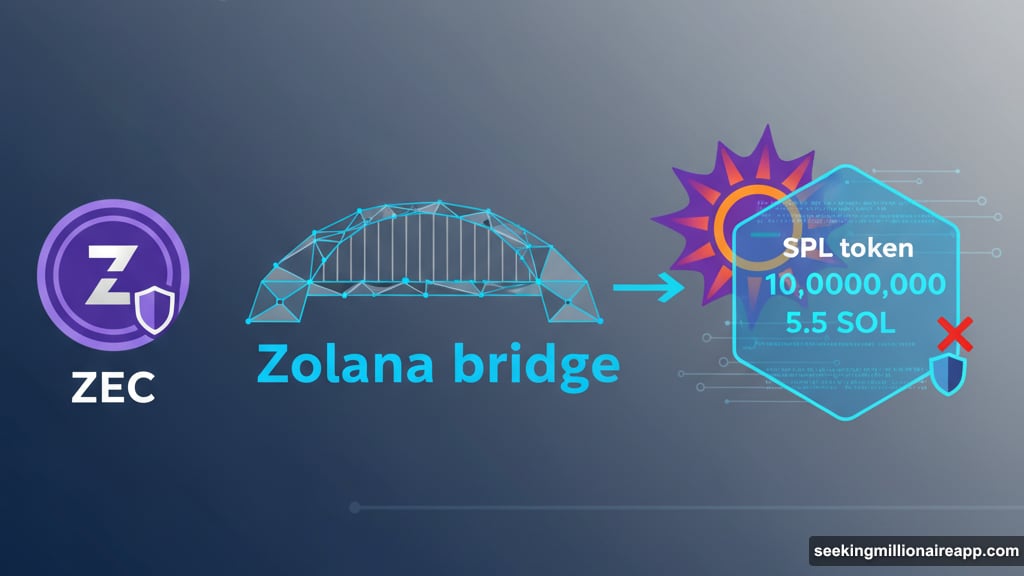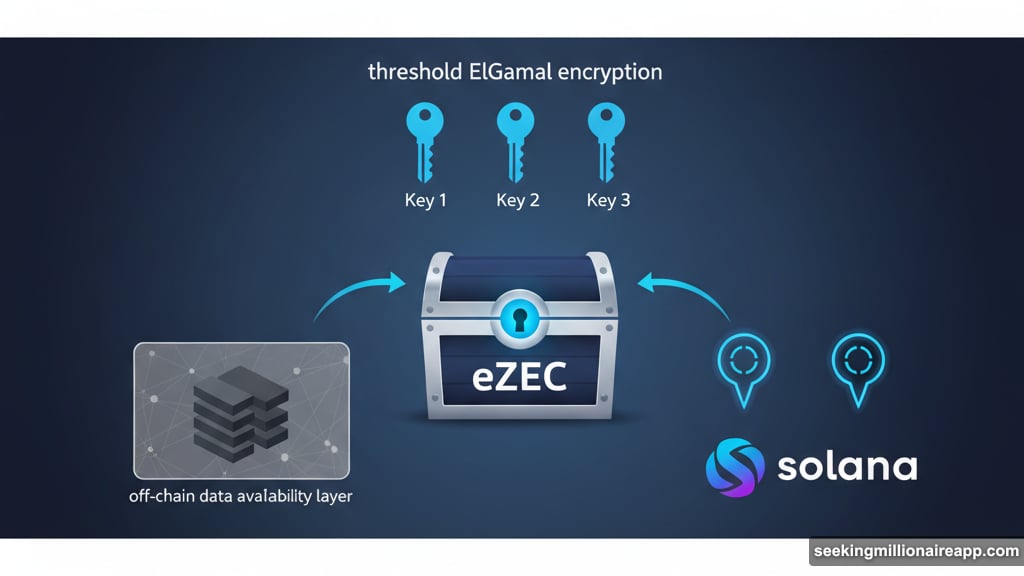Zcash just exploded 380% this month. Now everyone wants ZEC on their blockchain.
Solana jumped in fast with wrapped ZEC through the Zolana bridge. But there’s a problem. Those wrapped tokens work like regular Solana tokens. They lost the one thing that makes Zcash special: privacy.
Think about that. You wrap a privacy coin, and it becomes completely transparent. Your balances, transactions, everything—visible to anyone watching the blockchain.
Encifher found a way to fix this mess.
Wrapped ZEC Broke Privacy
Standard wrapped ZEC on Solana functions as a normal SPL token. Sure, it’s backed 1:1 by native ZEC. But it doesn’t hide your balance or transaction history.
That defeats the entire point of using Zcash. People choose ZEC specifically for financial privacy. When you wrap it on Solana, that privacy vanishes completely.
Plus, most users don’t realize this tradeoff. They see “ZEC on Solana” and assume it maintains the same privacy guarantees. It doesn’t.
Encifher Re-Wraps Tokens with Encryption
Encifher solves this by creating encrypted assets like eZEC. Instead of standard wrapping, they add a privacy layer using fully homomorphic encryption (FHE).
What does that mean practically? Your balances and transfers stay hidden on-chain. Yet the tokens remain fully compatible with Solana DeFi applications.
As Encifher explained on X: “To truly make ZEC private on Solana, it should be re-wrapped into encrypted assets like eZEC, where balances and transfers are hidden, yet composable with Solana DeFi.”

Think of it as putting your ZEC in a locked box. Everyone can see the box exists. Nobody can see what’s inside or how much you have.
The Technology Behind It
Encifher uses threshold ElGamal encryption for client balances. Imagine a treasure chest that only opens when multiple trusted parties bring their keys together. No single person can access it alone.
The system stores encrypted data off-chain in a secure data availability layer. Meanwhile, Solana handles cryptographic pointers to these balances without exposing actual values.
Zero-knowledge proofs validate transactions without revealing sensitive information. Only authorized parties can decrypt data using threshold protocols.
Moreover, Encifher employs ephemeral accounts that exist for just one transaction. This prevents third parties from linking transactions or tracking address reuse. Each transaction creates a fresh account that disappears after use.
Jupiter Integration Makes It Practical
Encifher built these privacy features on top of Jupiter, Solana’s leading decentralized exchange. Users can now trade encrypted tokens while maintaining privacy.
This matters because DeFi applications need composability. If privacy tokens don’t work with existing exchanges and protocols, nobody uses them.
So Encifher solved both problems. Privacy and compatibility. You get Zcash’s original privacy vision running on Solana’s fast, cheap network.
Why ZEC Surged 380%

Several factors drove ZEC’s massive rally this month. The price jumped from under $100 to $375, according to CoinDesk data.
First, the upcoming ZEC halving creates supply pressure. Halving events historically trigger price increases across cryptocurrencies.
Second, Grayscale launched a ZEC Trust. Institutional investors can now gain ZEC exposure without holding the cryptocurrency directly.
Third, Hyperliquid added ZEC listing. More exchange access typically expands the buyer base.
But here’s the interesting part. As ZEC price surged, demand to use it on other chains exploded. That’s why bridges and wrapped versions appeared quickly. Everyone wants to capture this momentum.
The Privacy Trade-Off Nobody Talks About
Standard blockchain bridges prioritize speed and compatibility. Privacy gets sacrificed for convenience.
Most wrapped tokens on fast chains like Solana become transparent by default. That’s fine for Bitcoin or Ethereum. Those never promised privacy anyway.
But privacy coins exist specifically to hide transaction details. When you strip that away, you’re left with an expensive, inefficient version of a regular token.
Encifher recognized this problem early. Instead of just wrapping ZEC, they rebuilt privacy from scratch using modern encryption techniques.
The result? Users gain Solana’s speed without sacrificing Zcash’s core value proposition. That’s actually innovative, not just another bridge.
Cross-chain privacy matters more as cryptocurrency adoption grows. People want fast transactions AND financial privacy. Encifher proves you can have both.
